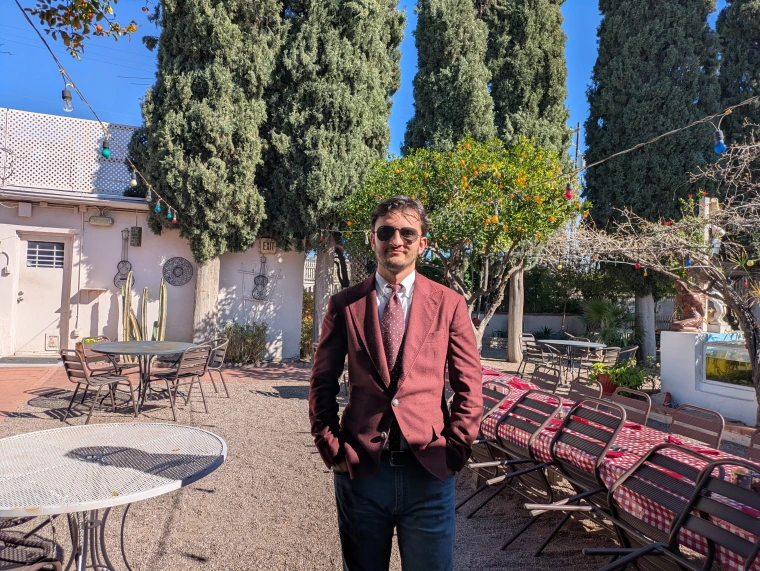Arlind Fazliu
Arlind is a Kosovar polyglot linguist, writer, translator, and mental health advocate. He holds a BA degree in English Language and Literature from the University of Prishtina, Kosovo, and an MA in Second Language Acquisition from the University of Maryland, College Park, where he studied as part of the Fulbright program. In 2016, Arlind did a year of exchange studies at Universität Vechta in Germany, where he studied Anglistik und kulturwissenschaft [English and Cultural Studies], through a grant from the Erasmus program. Currently, Arlind is a first-year PhD student of Linguistics. His research is primarily focused on the influence of Classical Latin on English primary word-stress and the role of stress in Old Norse poetry – particularly, dróttkvætt.
Publications
In 2023, in an attempt to fill in the substantial gap in Albanian literature about mental health – building upon his studies at UMD, where his learning focused on the impact of mental ills such as bipolar and schizophrenia on language acquisition – Arlind published the inaugural book in Albanian about manic-depression – namely, “Pikëllimi i heronjve” [The Heroes’ Melancholy], which discusses the history, symptoms, aetiology and treatment of manic-depression.
The web counterpart of the book can be found here: https://crregullimibipolar.com/
Translations
Proficient in several languages, Arlind has also embarked on the world of translation, bringing into Albanian several books, amongst which the classic Brazilian novella, “O Alienista” (1882), by Machado de Assis and “The Six Pillars of Self-Esteem” by Nathaniel Branden (2024). In addition, Arlind has selected and translated from Portuguese and Spanish several short stories – namely, “Rrëfenja të zgjedhura hispanoamerikane” [Selected Spanish-Latino Stories], which includes authors as prolific as Lima Barreto, Ramón Del Valle-Inclán, Ramón J. Sender, Max Aub, Machado de Assis, etc., many of whom had not been introduced to the Albanian public before.


